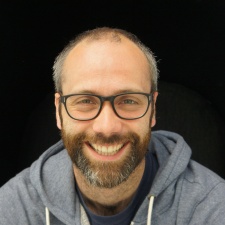Pocket Gamer Connects London 2019 will take place on January 21st to 22nd. To give you a taste of what to expect, we'll regularly be publishing interviews with the speakers at the show.
For more details on PGC London and to book a ticket, head to the website here.
In today’s speaker spotlight, we’re talking to Paladin Studios CEO Derk de Geus, who will be taking part in our “How to Make Great Games without Crunch / Mental Health Problems in the Games Industry” panel.
PocketGamer.Biz: Could you tell us a bit about your company?
Derk de Geus: Paladin is a games development studio based in the Netherlands. We create games that make you smile; be it a sweet twinkle, loud laugh or an evil grin.
With 50 people spread over four dev teams, the studio focuses on high-quality 3D game development, from initial concept to live ops. We work primarily on a co-development basis.
Using Unity, we create games for mobile, PC and console - both F2P and premium.
What does your role entail?
I am the co-founder and CEO, which means that my job is to keep the studio healthy in the broadest sense of the word.
Apart from strategy and business development, my focus is on nurturing the company culture and improving the internal workings of the studio.
Why did you want to work in the games industry?
My background is in media design and 3D animation, during my internship I started doing some programming, and on the side I produced music.
If you combine all of these, you get games and games are exactly the medium I love the most.
In 2005 I dropped out of art school and co-founded Paladin with a good friend of mine. Our goal was to create a "cool development studio", but we weren't exactly making "real" games.
Instead, we used game technology to build training simulators, architectural visualisations and educational games.
But the dream was there from the beginning and when the App Store launched, we took a leap of faith and developed our first entertainment games. I never looked back!
What advice would you give to anyone looking to get into it?
Game development is an amazing field of work where you can join forces with incredibly talented people. It takes a creative, diligent and intelligent kind of person to pursue this career successfully.
Working in these creative teams on such a challenging craft is a privilege.
Games are at the intersection of art, technology, entertainment, psychology, culture, design, data, business and marketing. Everything has to come together in synergy to create a success.
Therefore, the advice I have is fairly straightforward: Educate and develop yourself to be the best person you can be. Not just in your chosen professional field, but as a general human being.
If that sounds fluffy, consider that you'll have to work together with others throughout your career and that you will need every inch of technical and social skills to make that work.
There is always a job for people of integrity, who are great to work with and who get things done.
What are your thoughts on the industry in the last 12 months?
I am sad and concerned when I see the terrible working conditions and dubious business practices that have been going on.
I think the call for improvement on areas such as crunch, fair treatment of employees and general HR practices are justified and incredibly important moving forward.
We need to remember that we're not just competing for talent with other game companies - we're competing with other well-established industries such as tech, animation, and movies.
Let's recognise that it's a good business practice to treat people decently.
What significant trends do you predict in the next 12 months?
First, I hope that there will be a wake-up call to improve working conditions across the industry.
The companies that do well on this front have a tremendous opportunity to get and keep the best talent, and I hope that the creatives recognise that their work should be valued appropriately and that working conditions should be at least up to professional standards.
Second, I expect that Pandora's Lootbox will open up. Regulation is on its way, and the way we act as an industry will determine the intensity of it. Let's treat our players with respect.
Now is the time to make a clear distinction between gambling and gaming, and to stay away from the latter.
How has the games industry changed since you first started?
In 2005, I could see no way we could get started in the entertainment games industry without heavy investment and a big publisher deal. This pushed us into "applied games" development services.
Since then, digital distribution has completely changed the landscape. The barrier of entry is next to nothing, distribution cost is zero, so games are free, and the games-as-a-service business model has created tremendous opportunities and equal challenges for developers.
All in all, it's still the same hardcore business, it's still a rollercoaster, but today you can achieve pretty much anything if you have the wits and the grit.
Which part of the Connects event are you most looking forward to and why?
Reconnecting with my friends and business partners, and catching up on the latest insights from the awesome folks out there.
Find out more about Pocket Gamer Connects London 2019 on the website.






















